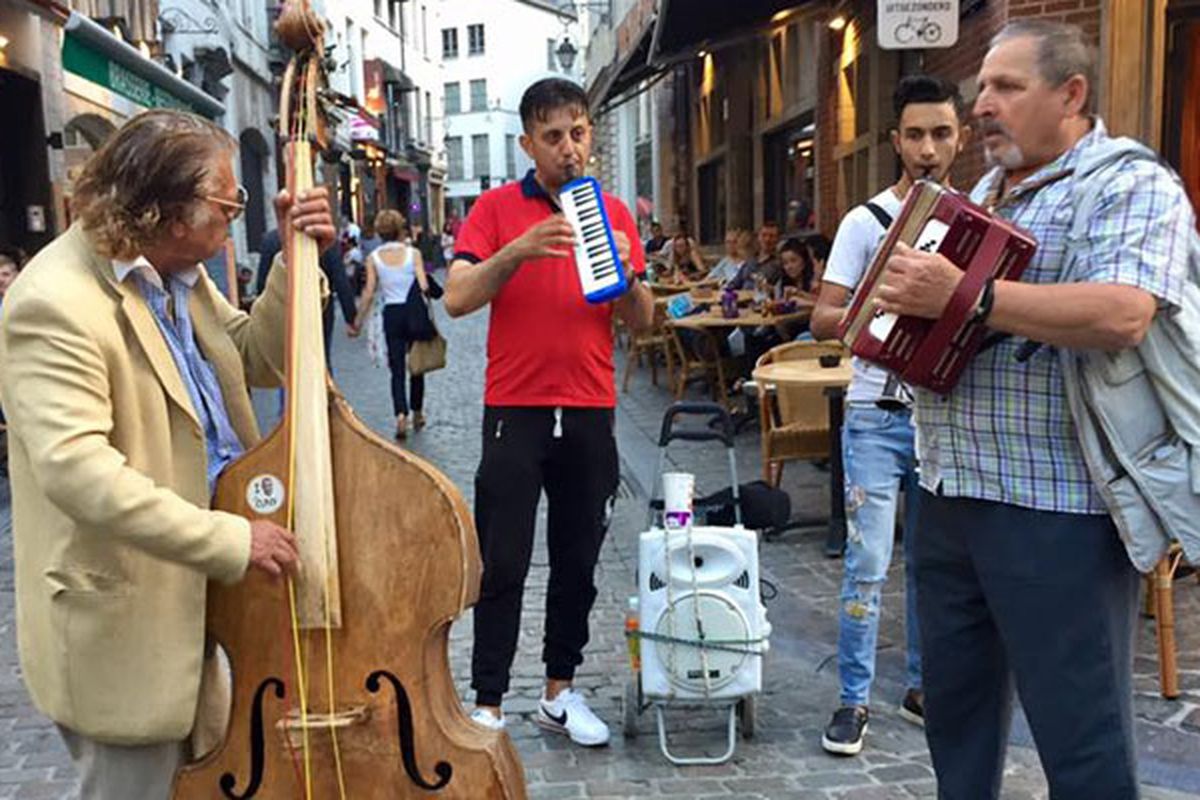Covid-19 Situation in Europe Forces Governments to Tighten Restrictions

GENEVA, KOMPAS.com - Europe is tightening Covid-19 restrictions as it clamps down on the second wave of coronavirus infections hitting the continent.
Governments across Europe are buckling under pressure as the number of newly confirmed Covid-19 cases in the continent reached their highest weekly level since the start of the coronavirus pandemic.
The World Health Organization said Tuesday there were more than 700,000 new Covid-19 cases reported in Europe last week, a jump of 34 percent from the previous week.
Britain, France, Russia and Spain accounted for more than half of the new infections forcing some governments to reinstate coronavirus restrictions to curb the spread of infection.
Read also: Europe Unprepared as Second Wave of Infections and Pandemic Fatigue Strikes Continent
Europe’s massive uptick in new infections is partly the result of more testing, however, the WHO noted that Covid-19 deaths in the continent increased 16 percent last week from the previous week.
Although doctors are saying that recent coronavirus cases in Europe are in younger people, the novel virus could again start spreading widely among older people.
Thus, while the younger Europeans have milder symptoms, the continent’s older citizens typically have more serious illnesses.
Italy and France are restricting parties and putting limits on restaurants and bars as their governments respond to the second wave of coronavirus infections.
The Netherlands went further and ordered the closing of all bars and restaurants. And to discourage partying at home, it banned the sale of alcohol after 8pm.
Read also: The Netherlands Rethinks Coronavirus Guidelines on Face Masks as Cases Rise
The Czech Republic is closing all schools until November 2, while Latvia is ordering teenagers to switch to distance learning for a week.
Britain unveiled a three-tiered system for deciding what restrictions to impose, based on how severe the outbreak is in certain areas.
Those moves reflect a new approach to containing the virus among governments wary of hurting already fragile economies.
Officials are eager to avoid the total lockdowns they imposed in the spring that resulted in heavy job losses.
Instead, they are relying on a patchwork of regional or targeted coronavirus restrictions that have sometimes caused confusion and frustration by those affected.
The UN health agency appeared to support the new approach, with WHO spokesman Tarik Jasarevic saying lockdowns should be a “last resort” in responding to the second wave of coronavirus restrictions.
German Chancellor Angela Merkel told a European Union advisory body Tuesday that she is watching the rising infection figures “with great concern”.
Read also: Indonesian President Confident in Government’s Handling of Covid-19
“We must not squander now what we achieved through restrictions in recent months,” Merkel said in a video address.
“None of us found it easy to impose those restrictions,” she added. “Many people lost their lives, and so it is all the more important that we ensure now that a further lockdown won’t be necessary, that our health system isn’t overstrained again.”
Italian Premier Giuseppe Conte ordered bars and restaurants to close at midnight and banned pickup sports games among friends and parties in enclosed spaces.
Private gatherings at homes with more than six people who don’t live together are also discouraged.
“Our objective is clear: We must prevent our country from plunging back into a generalized lockdown," Conte said.
Read also: Jakarta Extends Partial Lockdown as Hospitals Feel Weight of Covid-19 Caseload
Italy reported more than 5,900 people tested positive over the past day and 41 people died, bringing the country's official Covid-19 death toll to more than 36,200, the second-highest in Europe after Britain.
The outbreak has spread to the annual Giro d’Italia, which was thrown into chaos after several top riders withdrew from the cycling race following positive tests for the coronavirus.
Italy made masks mandatory outdoors last week, a requirement already in place in Spain, Turkey, India, and a few other Asian countries.
Elsewhere in Europe, such mandates are in effect in many places in Poland and hotspot cities like Paris and Brussels, and are being introduced in several German cities.
In France, which has seen a rapid increase in infections, Paris, Marseille and seven other large cities have been placed under maximum alert, resulting in the closing of bars, gyms and swimming pools.
Read also: Paris Bars to Close as French Capital Placed on Maximum Covid Alert
Public parties are banned, and restaurants have to maintain at least 1 meter (3 feet) between tables, with groups of diners limited to six people.
Polish Prime Minister Mateusz Morawiecki urged the country’s citizens to observe social distancing and wear masks as he himself went into quarantine following contact with someone who later tested positive for Covid-19.
He said in a video message that his government was working as usual and that he had no symptoms.
Poland, a nation of about 38 million, has seen a sharp spike in newly recorded infections, with close to 5,100 cases and 63 deaths reported Tuesday. Over the summer, new daily cases were around 600.
Some doctors are warning that Poland's chronically underfunded health care system may collapse if the current rate of new cases continues.
In Britain, which has suffered the deadliest outbreak in Europe, with a toll of more than 43,000, officials defended their new system as striking the right balance.
Read also: Boris Johnson Considering Second Round of Coronavirus Lockdowns in UK
Under the plan unveiled this week, Liverpool is in the highest-risk category, and its pubs, gyms and betting shops have been shut.
"The prime minister has to balance protecting people’s lives and the NHS (National Health Service) from the virus while also prioritizing things that matter to us as a society, like education and keeping as many people in employment as possible,” Communities Secretary Robert Jenrick told the BBC.
Britain’s number of newly confirmed Covid-19 cases has more than tripled in the last three weeks, with infection rates rising across all age groups and regions.
In an effort to keep people and goods moving throughout the European Union amid the second wave of coronavirus infections, member countries approved a color-coded system Tuesday.
The countries agreed to not restrict people traveling between green areas — where infection numbers are low — but EU governments will continue to set their own restrictions, such as quarantines or mandatory testing upon arrival, for people coming from orange or red zones.
(Writer: Jamey Keaten, Frank Jordans)
Simak breaking news dan berita pilihan kami langsung di ponselmu. Pilih saluran andalanmu akses berita Kompas.com WhatsApp Channel : https://www.whatsapp.com/channel/0029VaFPbedBPzjZrk13HO3D. Pastikan kamu sudah install aplikasi WhatsApp ya.

































